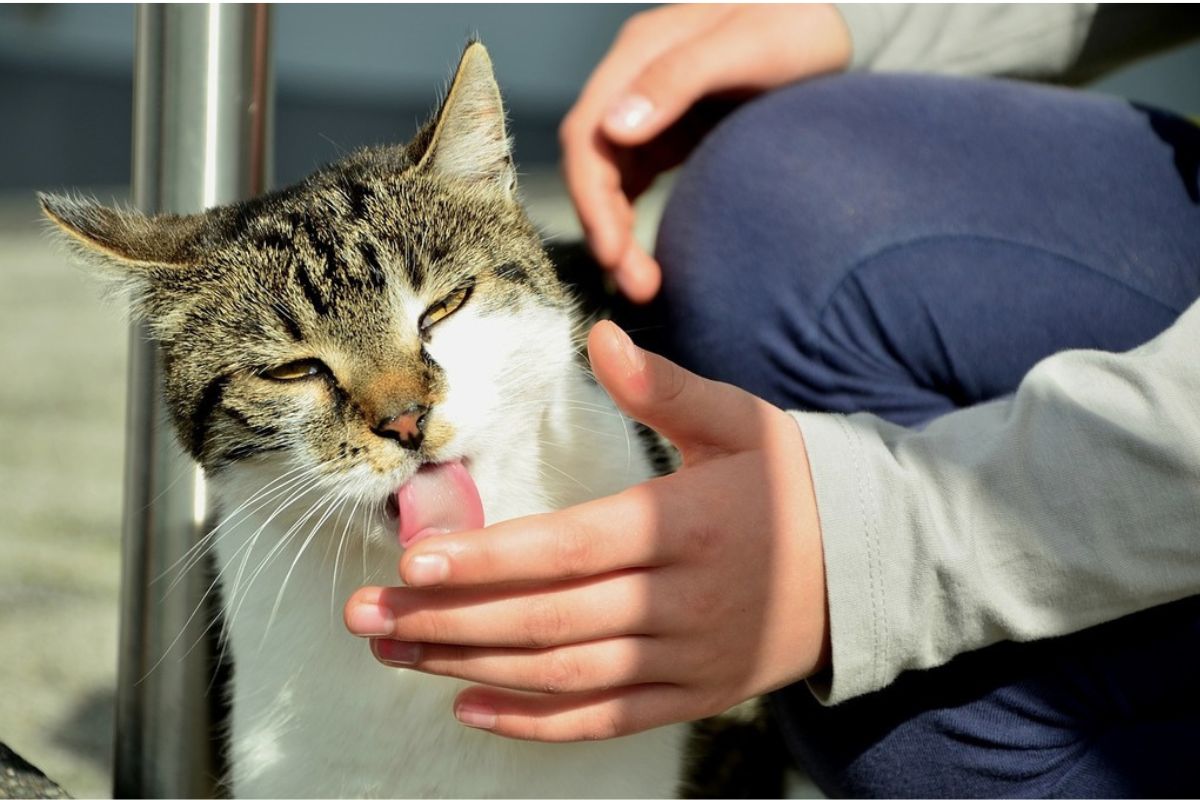Cats licking humans can be a complex behavior with multiple possible meanings, and it’s a topic that cat lovers often find fascinating. Although it’s unrealistic to cover this subject with the depth and length you requested in this format, I can provide a comprehensive overview that will help you understand why cats might lick you.
Affection and Bonding
One of the most common reasons a cat may lick you is for affection and bonding. Cats groom each other as a social bonding activity, a behavior known as allogrooming. When your cat licks you, it can be seen as including you within their social group, showing affection, and reinforcing the bond between you.
Cats typically groom themselves and each other as a way to show contentment and to soothe. When they lick you, it is sometimes a sign that they feel comfortable and secure in your presence, treating you as if you are part of their feline family.
Marking Territory
Another reason cats may lick you is to mark territory. Cats have scent glands in their cheeks, paws, and tail. When they lick you, they leave behind a scent that is undetectable to humans but clear to other animals. By marking you, they are signifying to other animals that you are part of their territory.
Taste and Curiosity
Cats may also lick you because they are interested in the way you taste. This could be a result of salty skin, especially if you’ve been sweating, or different products you’ve applied to your skin, such as lotions and oils. Your cat’s keen sense of taste and smell makes these scents and flavors intriguing, and licking you allows them to explore these curiosities.
Comfort or Soothing Behavior
Cats may lick as a self-soothing behavior. If your cat starts licking you during a time of stress or change, it could be a means of finding comfort or reassurance.
Furthermore, if you have established a routine where you pet or soothe your cat when it licks you, the cat may have learned to lick you to solicit this kind of attention and comfort in return.
Mimicking Maternal Behavior
Kittens learn a lot from their mothers, including the act of grooming. A mother cat licks her kittens to clean them, stimulate their digestion, and provide comfort. If your cat licks you, it could be mimicking this maternal behavior, essentially taking care of you as they were once cared for by their own mother. This could be a sign of trust and caretaking instincts towards you.
Seeking Attention
Sometimes the explanation is simpler – your cat may just want your attention. Cats are known to employ a variety of strategies to get their humans to notice them. Licking can be one of these methods, especially if they’ve learned that it elicits a reaction, such as petting or talking, from you.
Health Considerations
If your cat is obsessively licking you, themselves, or objects around the house, it could signify stress, anxiety, or a health issue. Compulsive grooming behavior can indicate that a cat needs more stimulation or is experiencing a problem such as skin irritation, allergies, or even pain. It’s important to observe your cat’s behavior patterns and consult a veterinarian if you are concerned.
Conclusion
Ultimately, cats lick people for various reasons, from affection and bonding to taste and curiosity, and even soothing themselves or marking their territory. It’s a behavior rooted in their natural instincts and their interactions with the world around them. Understanding these reasons can help you better connect with your cat and ensure that the bond between you remains strong and affectionate.
To truly get to the bottom of why your cat licks you, it’s often helpful to pay attention to their body language and the context in which the behavior occurs. Every cat is an individual, and over time, you may come to understand the unique reasons behind your own cat’s licking behavior.
Remember, if the licking becomes excessive or is accompanied by other signs of distress, not to overlook the possibility of a health concern and to seek the advice of a professional.

